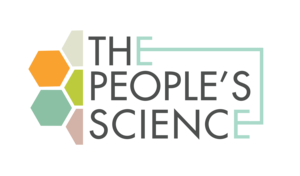TIPS & TRAINING
This is a list of media, articles, blog posts, etc. focused on helping researchers develop their science communication and public engagement skills.
Know of a resource you'd like to see added to this list? Submit here.
BOOKS, ARTICLES & GUIDES
Scitable by Nature Education
This three-part guide is the result of a survey of 218 mostly science journalists conducted in 2015. The results of the survey were compiled and synthesized to provide tips for researchers interacting with the media in three sections: Before the Interview, During the Interview, and After the Interview.
Arthur M. Sackler Colloquia of the National Academy of Sciences
Published in 2014, this is a 138 page summary of a 2013 colloquium on the science of science communication. This includes evidence-based theories and strategies from across fields and includes chapters on: (i) The Sciences of Communication, (ii) Science in a Time of Controversy, and (iii) Creating Collaborations for Communication.
Burroughs Wellcome Fund
This 64-page guide provides tips from scientists who have successfully shared their science with the public via speaking. It links to additional resources, provides anecdotes and insights from a range of perspectives, and walks you through some of the most crucial components of effective speech writing and sharing.
Sense About Science | USA
This three-part guide is the result of a survey of 218 mostly science journalists conducted in 2015. The results of the survey were compiled and synthesized to provide tips for researchers interacting with the media in three sections: Before the Interview, During the Interview, and After the Interview.
This 16 page pdf summarizes the risks and benefits of communicating with the media, and how to go about doing it. The report was developed as part of the EU Messenger project after extensive consultation with key stakeholders including scientific institutions, government agencies, journalists, broadcasters and media specialists, and representatives of civil society groups and organizations.
ADDITIONAL BOOKS, ARTICLES & GUIDES:
Advice for Scientists Who Want to Write for the Public. Rob Dunn. Your Wild Life Blog.
Top Ten Writing tips for scientists. David Bradley.
Successful Communication: A Toolkit for Researchers and Civil Society Organizations. Overseas Development Institute.
You've Got Some Explaining to do: Advice for Neuroscientists Writing for Lay Readers. The Dana Foundation.
Elevator Pitches for Scientists: What, When, Where and How. The Postdoc Way.
Nine Ways Scientists Demonstrate They Don't Understand Journalism. The Guardian.
6 Quick and Easy Ways to Better Explain Science to Non-Scientists. Editage Insights.
Science Communication Toolkit. Inspiring Australia.
PODCASTS & TALKS
You can be interviewed about your passion and your journey for a podcast about scientists!People Behind the Science is a podcast focused on the people doing fascinating research through interviews with top scientists. Each scientist guides the listeners through their journey by sharing their successes, failures, and passions. Questions covered include: what motivates you and how you balance your competing responsibilities, how you worked through some of the most challenging times in your career, advice to help the listeners through their own journey through life and science.
In this four and a half minute talk, Melissa Marshall shares six tips for communicating scientific ideas clearly: (1) Be aware of your audience (2) Show the relevance (3) Paint a picture (4) Make numbers meaningful (5) Banish bullet points (6) Deliver dynamically.
ADDITIONAL PODCASTS & TALKS:
- Coming Soon...
WORKSHOPS & COURSES
Sense About Science
VoYS is a unique and dynamic network organized by Sense About Science of early career researchers across Europe committed to playing an active role in public discussions about science. By responding to public misconceptions about science and evidence and engaging with the media, policymakers and the public, this active community of 3,000+ researchers is changing the way the public and the media view science and scientists.which hosts regular training workshops and works with young researchers to build an active community to “Stand Up for Science”
Alan Alda Center for Communicating Science
This center offers many forms of training for scientists hoping to improve their communication skills and connect with family, friends and colleagues to tell clear and vivid stories about their work. We have trained nearly 10,000 scientists in The Alda Method™ since 2009, successfully using improvisational theater exercises and message design workshops to address the common pitfalls of science communication. Please browse our website to learn more about the following training offerings.
This class develops the abilities of students to communicate science effectively in a variety of real-world contexts. It covers strategies for dealing with complex areas like theoretical physics, genomics and neuroscience, and addresses challenges in communicating about topics such as climate change and evolution. Projects focus on speaking and writing, being an expert witness, preparing briefings for policy-makers, writing blogs, and giving live interviews for broadcast, as well as the creation of an interactive exhibit for display in the MIT Museum.
Science Communication: Connecting people and creating events is a short introductory online course created to offer professional development for people new to science communication who want to develop their skills and knowledge in science communication practice. This course is run entirely online and is designed to be accessible to participants from around the world.
AAAS Communicating Science workshops, developed by the Center for Public Engagement with Science and Technology, are specifically designed to address the needs of scientists and engineers to communicate scientific or technical information in a variety of public and professional interactions, such as media interviews, writing grant proposals, discussing ideas with students, testifying before Congress, or participating in public forums. Workshop goals include building scientists’ communication skill and confidence in engaging with public audiences and providing best practices for use of different communication methods and mechanisms.
ADDITIONAL WORKSHOPS & COURSES:
Astronomy Ambassadors. American Astronomical Society. Upcoming opportunities.












